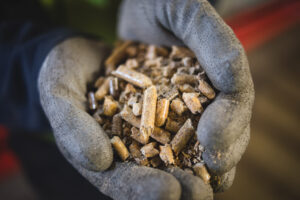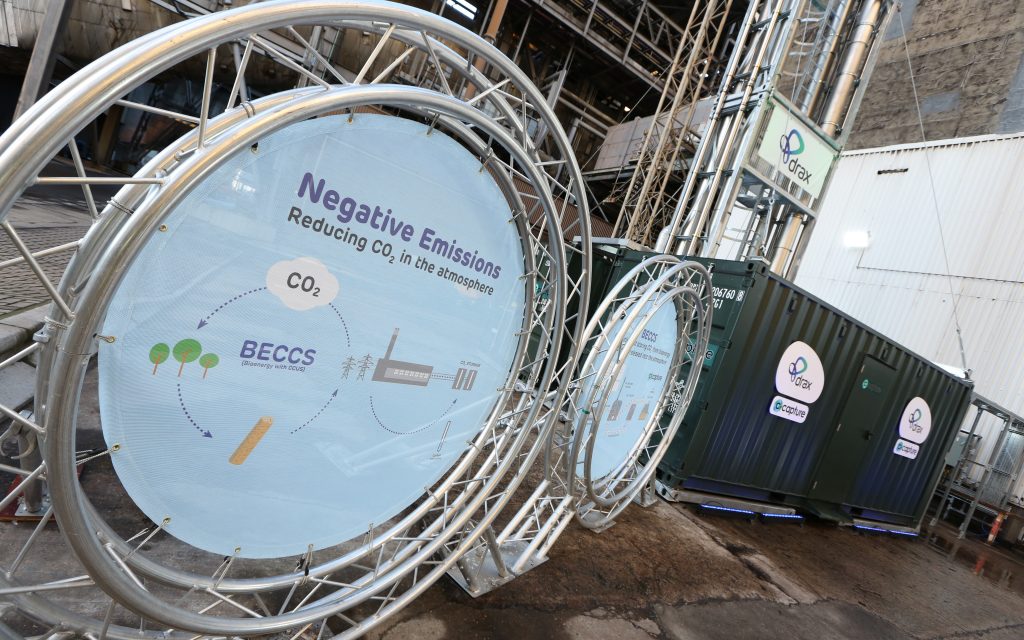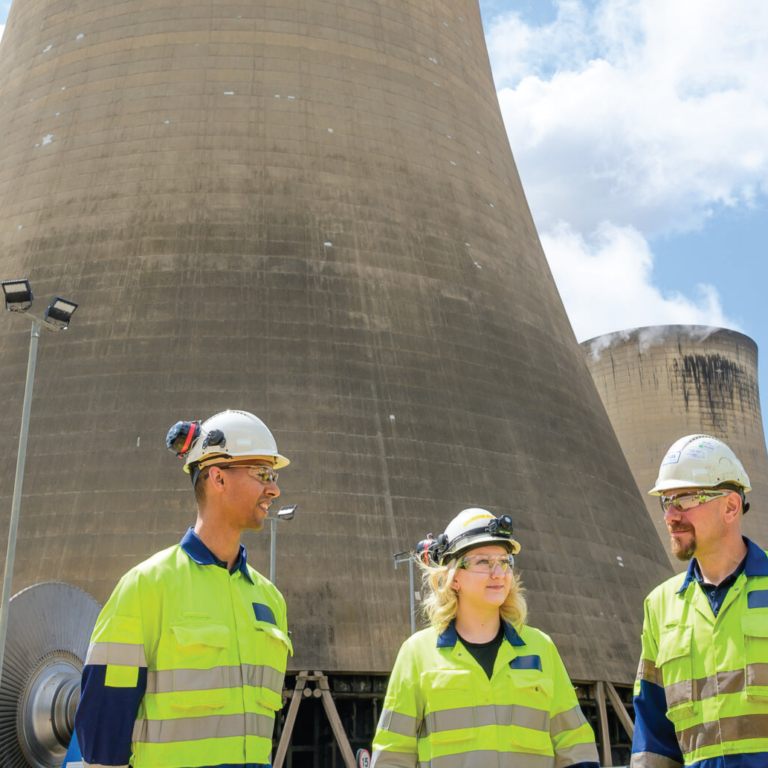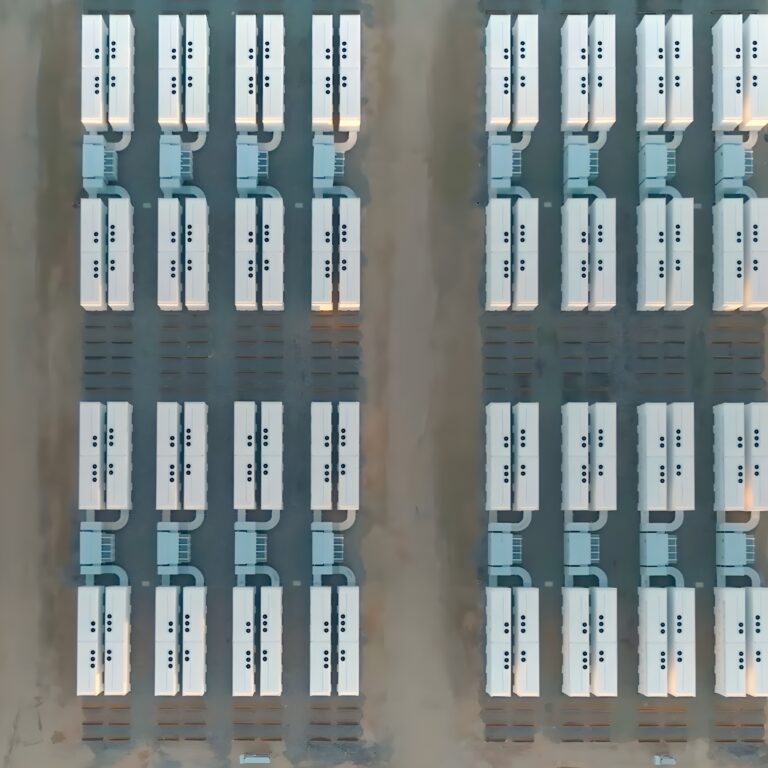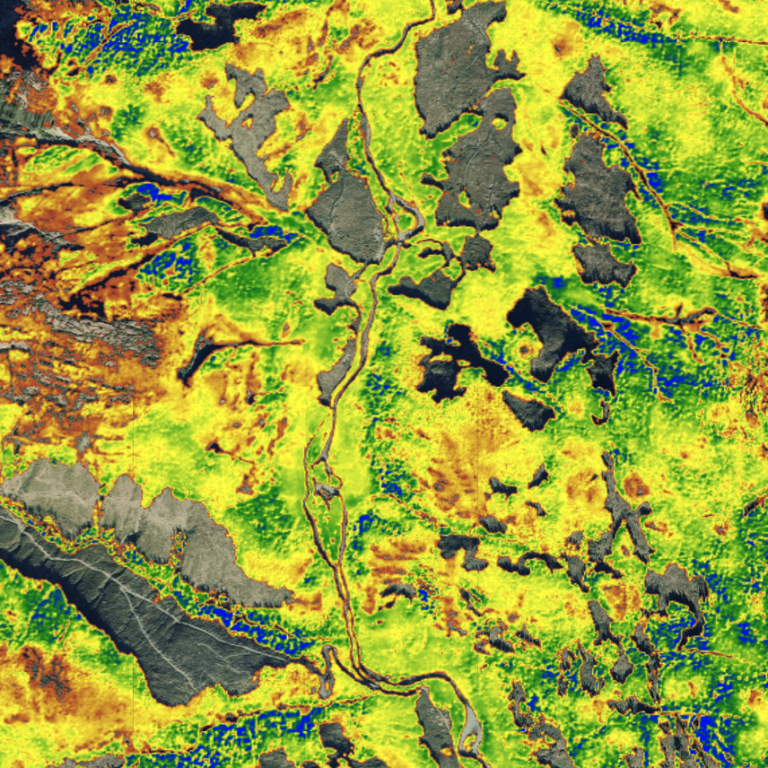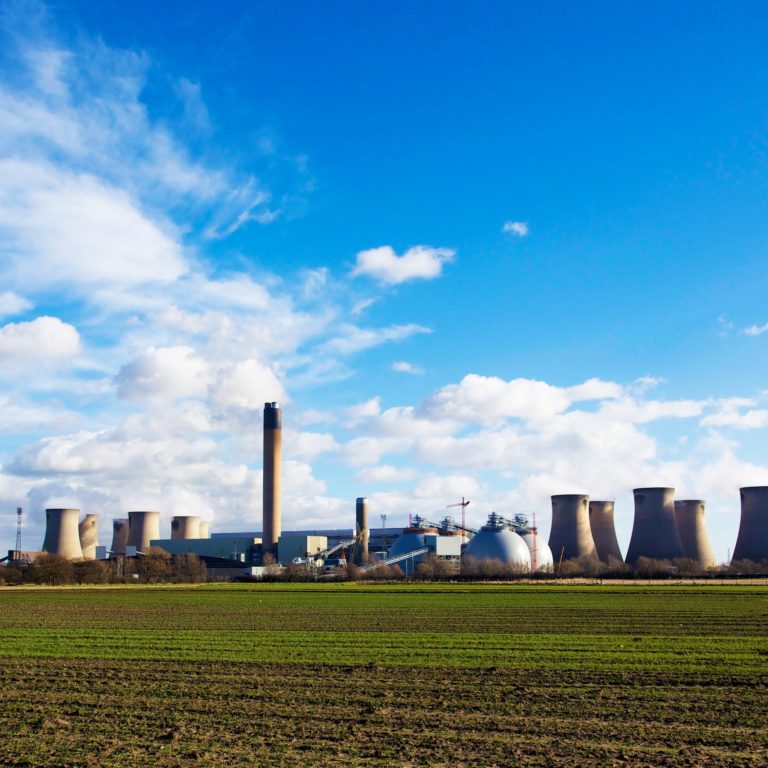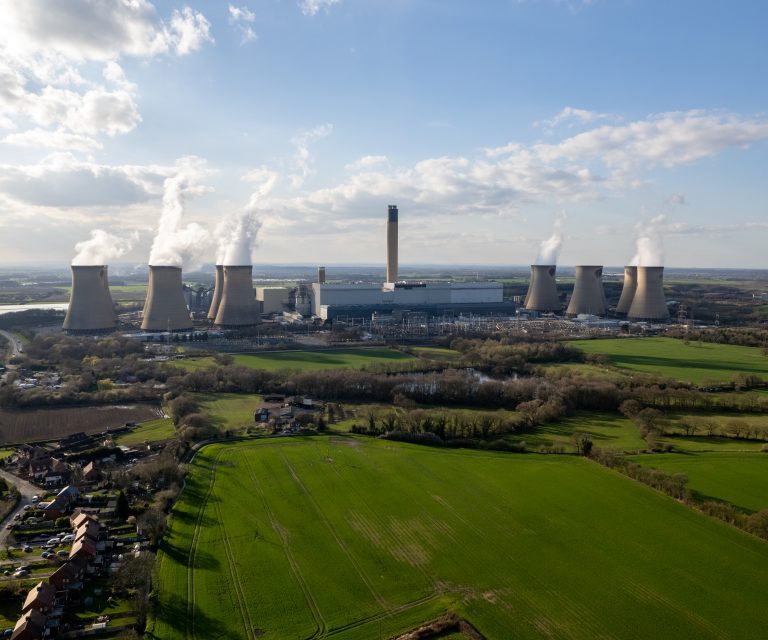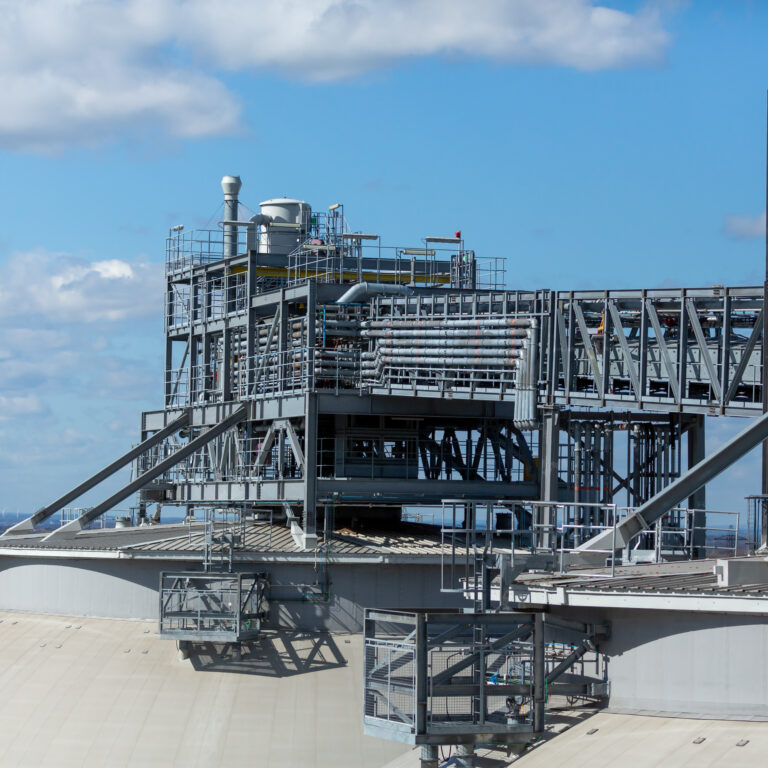The funding will be used by Leeds-based C-Capture and Drax’s Innovation team to further develop its understanding of how C-Capture’s technology could be scaled up at Drax in North Yorkshire, to become the world’s first negative emissions power station in the 2020s – effectively removing the greenhouse gas carbon dioxide from atmosphere at the same time as electricity is being produced. The company, which was established out of Leeds University’s School of Chemistry, has been working with Drax Group on its successful BECCS project, which started capturing carbon dioxide from February, proving the technology works.
The work being undertaken over the next two years includes:
- An extension of C-Capture’s existing pilot facilities at Drax Power Station.
- Plant performance optimisation trials
- A chemistry validation and testing programme with world-class research partners SINTEF and the CO2Technology Centre Mongstad, in Norway.
- Process design development to move towards commercial scale deployment, including re-purposing the existing Drax infrastructure for BECCS.
This award represents a vote of confidence in the scheme and will give C-Capture and Drax Group a clearer understanding of how the technology could be scaled up in the 2020s, enabling Drax Power Station to capture and store up to 16 million tonnes of carbon dioxide each year.
The funding has been awarded by the Department of Business, Energy and Industrial Strategy (BEIS) through its Carbon Capture Utilisation and Storage (CCUS) Innovation Programme.
Minister for Energy and Clean Growth, Chris Skidmore, said:
“Cutting edge technology to capture carbon will cut emissions as we work towards a net zero economy while creating new jobs – a key part of our modern Industrial Strategy. This innovative project from C-Capture and Drax represents a major milestone in efforts to rollout carbon capture at scale by the 2030s.”
Caspar Schoolderman, COO and Project Lead at C-Capture said:
“The on-going support from BEIS and our shareholders – BP, Drax and IP Group – has allowed C-Capture to build a team with unique skills and capabilities. The technology that we have developed is a game changer for carbon capture. Drax Group’s expertise in re-purposing existing infrastructure and C-Capture’s novel CCUS solution could allow the cost-effective deployment of BECCS for the first time on an industrial scale anywhere in the world.”
Aimed at supporting projects which can help deliver cost effective carbon capture initiatives which could then be used in industrial applications, the BEIS funding will help the UK to lead the world in developing CCUS technologies.
Will Gardiner, Drax Group CEO, said:
“If we scale C-Capture’s BECCS technology up at Drax across all four of our biomass generating units, the impacts will be far reaching.
“As the world’s first negative emissions power station, Drax could become the ‘anchor’ for a CCS network in the Humber region, capturing carbon from other nearby industrial emitters as well as our own CO2.”
“C-Capture’s technology could enable us to not only make a real impact on reducing our own carbon emissions, but also to deliver clean growth and jobs across the north, as well as new export opportunities for the UK making this project of major significance globally.”
If Drax’s BECCS pilot can be scaled up to deliver negative emissions, Drax Power Station would be helping to remove gases that cause global warming from the atmosphere at the same time as electricity is produced. Drax Power Station is already the largest decarbonisation project in Europe having converted two thirds of its generating units to use biomass instead of coal.
ENDS
Media contacts:
C-Capture
Professor Chris Rayner
Founder
T: 07879 834689 / 0113 343 6579
[email protected]
Paul Taylor
Taylor Keogh Communications
E: [email protected]
T: 07966 782611
Drax Group
Jessica Gorton
Press Officer
E: [email protected]
T: 07712 677177
Notes to Editors
- C-Capture’s technology uses new proprietary solvents to remove carbon dioxide, offering a safer and less expensive alternative to current technologies based on the use of amines. It provides a means to make the removal of carbon dioxide significantly more economic from arrange of large-scale processes, such as power generation from coal, gas and biomass, and the production of cement, steel, and aluminium.
- C-Capture, based in Leeds, was formed in 2009 by Prof. Chris Rayner as a spin-out from Leeds University with funding from IP Group. It had to date received £2.2m grant support from the UK Government (the Department of Business, Energy and Industrial Strategy) through its Energy Entrepreneurs Fund, with further support from the CO2 Capture Project. C-Capture has also raised £3.5m in new equity funding in a round led by BP Ventures, Drax, and IP Group. The funding underlines the credibility of C-Capture’s technology as the company continues to position itself to help mitigate climate change by providing systems that remove carbon dioxide emissions from power stations and cement, steel and aluminium facilities.
- The Committee on Climate Change’s Net Zero report states that BECCS could generate up to 173 TWh of electricity by 2050, capturing up to 51 Mt CO2 – around half of the remaining carbon in the economy that the UK will need to capture to become ‘net zero’.
- Drax is talking to a number of industries about using the CO2 it is already capturing in their processes. This could be for the production of concrete, putting the fizz in the drinks industry or creating synthetic fuels to use in hard-to-decarbonise sectors like aviation.
- Drax is also working with the Humber Local Enterprise Partnership, and other interested parties to explore the role CCUS can play in turning the Humber Estuary – the UK’s most energy intensive industrial cluster – into the world’s first ‘net-zero-carbon cluster’. It is ideally located for accessing offshore stores in the North Sea such as the Endurance field, which is roughly 60 miles off the coast.
- If Drax can scale up its BECCS pilot it could create more opportunities for capturing and storing carbon dioxide from other industrial emitters in the Humber region, unlocking the potential to create a new hydrogen economy, creating jobs and delivering major environmental benefits globally.
About C-Capture
C-Capture designs world-leading chemical processes for carbon dioxide removal. It has patented a unique, solvent-based technology which offers a safe, low-cost way to remove carbon dioxide from emissions sources such as power stations, industrial plants and anaerobic digestion for positive environmental benefit. In May 2018 C-Capture announced a partnership with Drax Group to run a pilot of its technology at the North Yorkshire power station, which will see carbon dioxide captured from biomass used in power generation, and show how C-Capture’s technology can be used as part of a process to remove existing carbon dioxide from the atmosphere (BECCS). C-Capture is proud of the potential its technology offers to mitigate climate change as part of the growing market for environmentally-conscious power generation and industrial processes. The company was formed in 2009 as a spin-out from Leeds University, and is backed by IP Group, Drax and BP Ventures. IP Group was set up with a mission to evolve great ideas, mainly from partner universities, into world-changing businesses.
Read more about C-Capture here and follow on Twitter
About Drax:
Drax Group’s ambition is to enable a zero carbon, lower cost energy future. Its 2,600-strong staff operate across three principal areas of activity – electricity generation, electricity sales to business customers and compressed wood pellet production.


